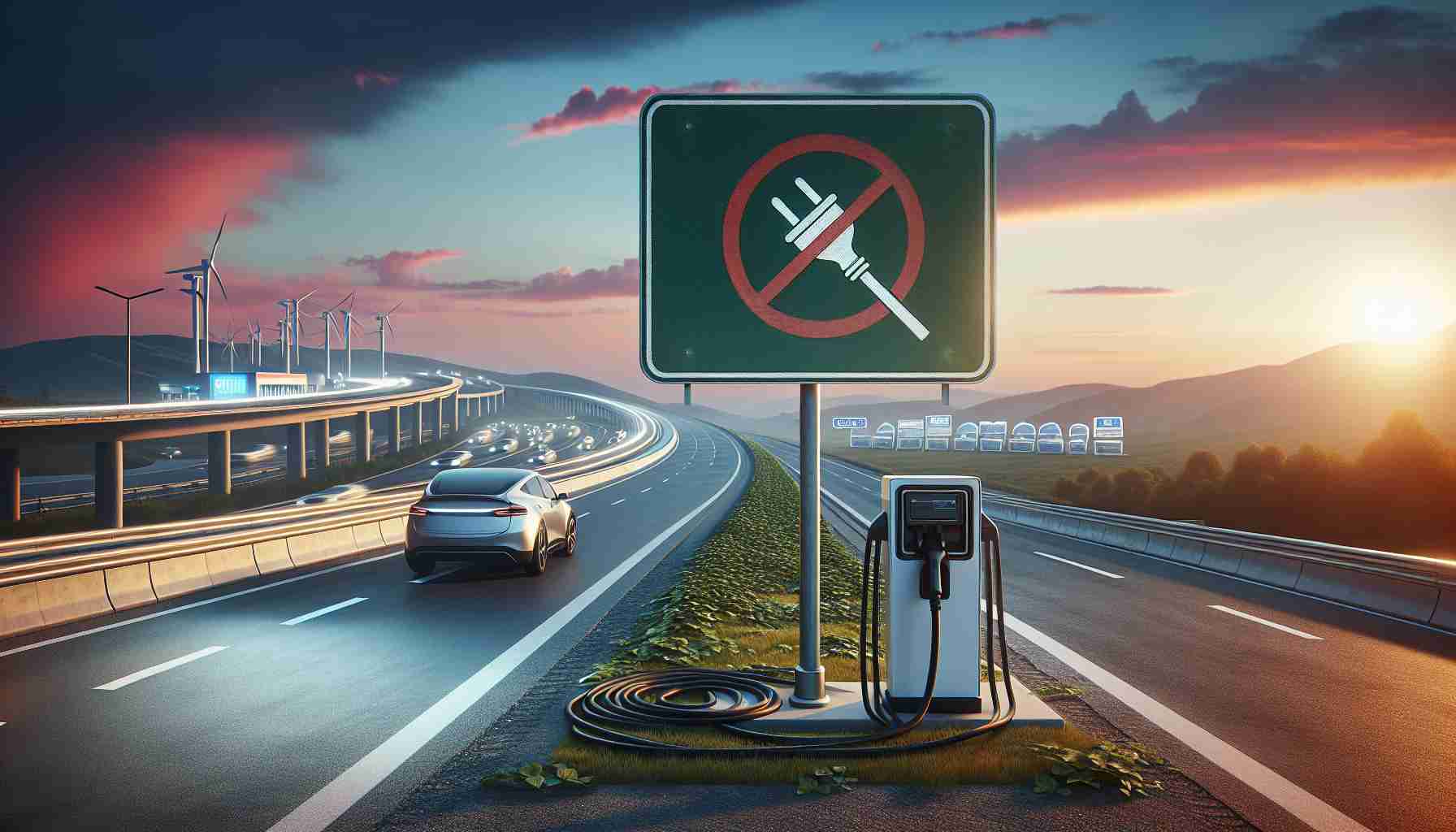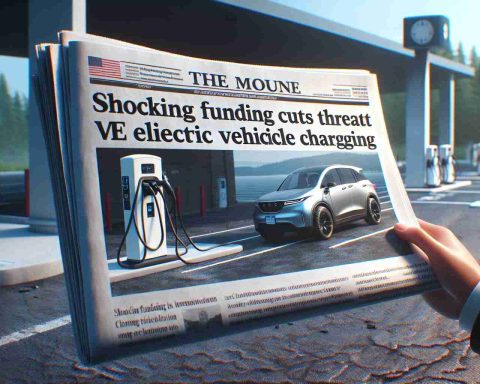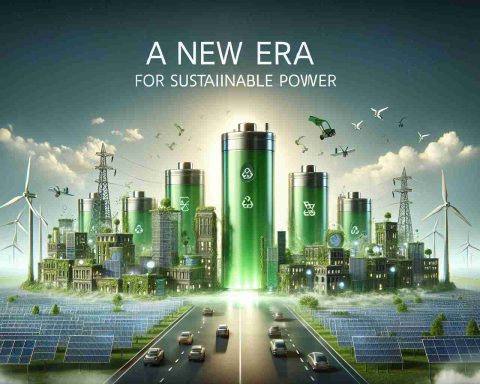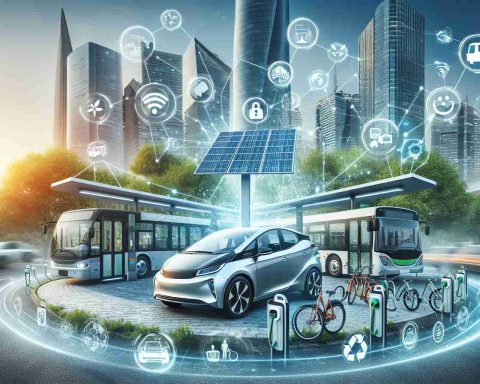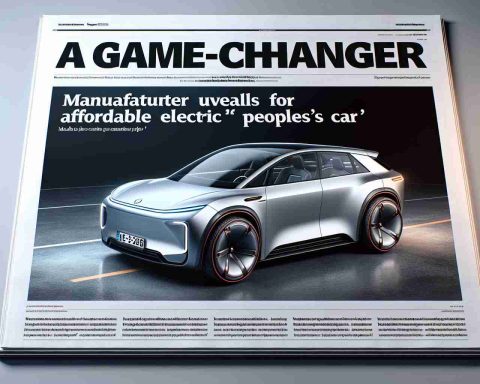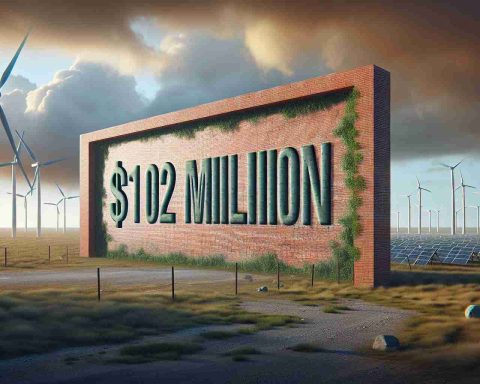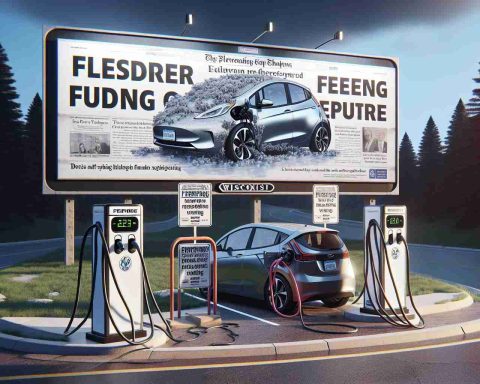- The Trump administration has halted EV charging projects funded by the Biden-era initiative, leading to uncertainty in the EV market.
- Despite the freeze, demand for EV charging infrastructure is expected to continue growing, according to industry leaders.
- The National Electric Vehicle Infrastructure (NEVI) program, which had a $5 billion budget, is now stalled, affecting state projects.
- The halt may hinder EV adoption, with potential consumers deterred by a lack of charging stations.
- Legal challenges could arise, questioning the authority to stop already approved funding.
- Private companies may step in to fulfill charging needs despite federal obstacles.
- The future of electric mobility remains uncertain if infrastructure development does not keep pace.
In a bold move raising eyebrows nationwide, the Trump administration has directed states to halt EV charging infrastructure projects funded under the Biden-era initiative, thrusting the future of electric vehicle (EV) charging into uncertainty. Trump decries federal funding for electric vehicle chargers as “wasteful,” but industry leaders foresee demand for chargers continuing to surge, regardless of this directive.
This new directive halts plans that many states have eagerly drafted to expand their EV charging networks. The National Electric Vehicle Infrastructure (NEVI) program, with a $5 billion budget earmarked to fill vital gaps in charging access across the country, is now stalled. States like Alabama and Rhode Island are already feeling the impact, as they grapple with the sudden stop to projects they had initiated.
Industry experts warn that this abrupt freeze could create a ripple effect detrimental to EV adoption nationwide. Without a robust network of charging stations, consumers may hesitate to invest in electric vehicles, potentially stalling the transition to a cleaner automotive future. Furthermore, legal battles could ignite, as there appears to be no solid legal basis for halting already approved funding.
Critics of this move emphasize that the demand for EV chargers is more than just a federal issue; private companies are poised to meet driver needs amidst the chaos. As the world shifts towards electric vehicles, the question lingers: Can the U.S. keep pace if charging infrastructure falls behind? The stakes have never been higher, and the shift to electric mobility hangs in the balance.
Shocking Turn of Events: Trump’s EV Charging Initiative Halt
The recent directive from the Trump administration to cease electric vehicle (EV) charging infrastructure projects funded under the Biden-era initiatives has generated significant concern among industry leaders. This abrupt stoppage threatens the National Electric Vehicle Infrastructure (NEVI) program, which was designed to allocate a $5 billion budget for enhancing EV charging networks nationwide. Here are some key insights regarding the situation:
Market Impact and Future Trends
1. Surging EV Demand: Industry experts project that the demand for electric vehicles will continue to rise. According to recent market analyses, global EV sales are expected to exceed 50 million units by 2030, driven by innovations and governmental policies aimed at reducing carbon emissions.
2. Private Sector Resilience: Despite the halt in federal funding, private companies are gearing up to invest in EV chargers. Analysts predict that while federal initiatives face uncertainty, private investments in EV charging infrastructure will grow by 25% annually over the next 5 years, as companies aim to capture a burgeoning market.
3. Legal and Regulatory Challenges: The halt of the NEVI funding may lead to legal disputes. Experts indicate that states may contest the federal decision based on established agreements and the urgency of adopting green technology amidst climate change concerns.
Key Questions and Answers
1. What effect will the halt of federal funding have on the EV market?
The halt poses a risk to the growth of EV adoption, as consumers often require convenient access to charging stations to consider buying electric vehicles. A lack of charging infrastructure could lead to lower EV sales, negatively impacting market expansion.
2. Can private companies fill the gap left by halted federal projects?
Yes, many private companies are already investing in charging networks. With consumer demand for EVs expected to rise, the private sector could play a crucial role in developing charging infrastructure despite the federal funding freeze.
3. What are the implications for environmental goals?
The delay in building out charging infrastructure could impede national and global efforts to reduce greenhouse gas emissions. Analysts emphasize that the success of electric vehicles is closely tied to the availability of charging stations, and without federal support, meeting environmental targets may become more difficult.
Insights and Innovations
– Technological Innovations: New charging technologies such as fast chargers and solar-powered charging stations are emerging, which may help mitigate some impacts of federal funding cuts by enabling more efficient and accessible charging solutions.
– Future Predictions: If the private sector can successfully build out charging infrastructure and states can find alternative funding sources, experts believe the transition to electric vehicles can still progress, though it will likely face delays.
– Sustainability Focus: The energy sector is increasingly aware that EV infrastructure must also prioritize sustainability. Future construction projects are anticipated to adopt greener practices, ensuring that charging networks align with overall environmental goals.
Suggested Related Links
U.S. Department of Energy
National Highway Traffic Safety Administration
Environmental Defense Fund
